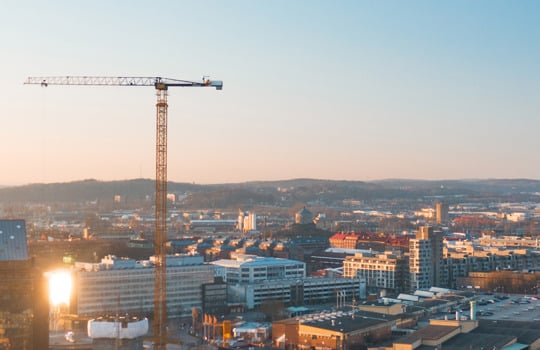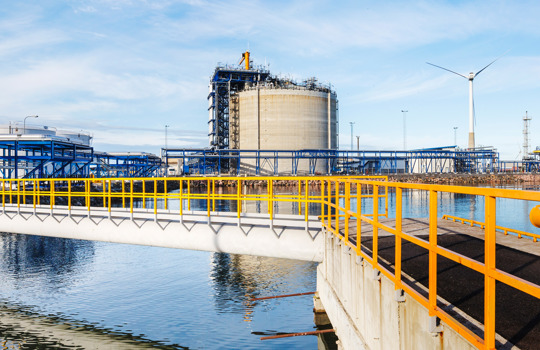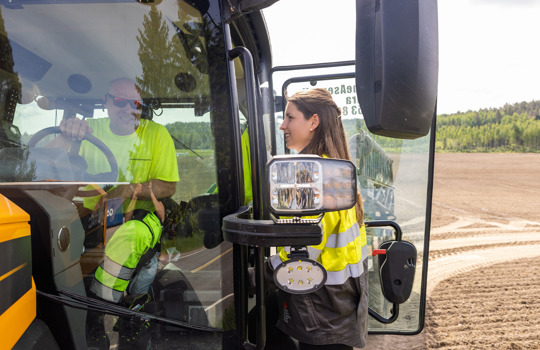Businesses work together for an eco-friendlier future
When businesses work together, they can develop and implement new, eco-friendly ways of working in line with the circular economy. HAVI, Remeo and Gasum joined forces to create a corporate showcase of how to implement the circular economy in practice.
Synergies and sustainability through the circular economy
Responsible companies these days are united through sustainable values. We at Gasum want to be part of building a more sustainable and eco-friendlier future and enable circular economy solutions between businesses. Joining forces can help businesses to reach goals that individual operators would be unable to reach alone – the outcome of working together is always creating a better future.
We have joined forces with HAVI, a foodservice logistics provider, who is officially committed to reducing emissions originating in their operations by 40% by 2030. Delivery and heavy-duty transport account for just under 40% of road traffic emissions in Finland and use of biogas as a road fuel can significantly reduce these emissions. We at Gasum are enabling our partner HAVI to reach their sustainability goals.
“Sustainability is an important part of HAVI’s strategy,” says Miikka Muhonen, Country Manager, HAVI. HAVI has replaced its logistics trucks with biogas-fueled trucks and at the same time switched from fossil fuels to biogas. This has allowed the company to successfully reduce its carbon dioxide emissions by as much as 90%.
According to Muhonen, HAVI has been pleased with biogas-fueled trucks – besides being eco-friendly, they are quieter than conventional trucks. The operating costs of the trucks have remained on the same scale as those of conventional vehicles.

“Sustainability is an important part of HAVI’s strategy,” says Miikka Muhonen, Country Manager, HAVI.
Whereas HAVI avoids the formation of waste in any way they can, it is impossible to eliminate all waste. This is where waste management company Remeo comes into the picture. Remeo’s waste management solutions help businesses to sort, store and recycle their waste efficiently and safely. According to Saija Jämsä at Remeo, the company supports its customers in their hectic everyday life and makes it easier for them to manage their waste management solutions. “The world can be changed but only through concrete choices,” Jämsä sums up. Remeo’s garbage trucks also run on renewable biogas.
Cooperation between HAVI, Remeo and Gasum is a good example of the circular economy and the synergies it brings when businesses work together. Cooperation between the companies means that HAVI can benefit from the biowaste arising in its operations as a fuel for its logistics trucks. In practice, cooperation means that Remeo collects biowaste from HAVI’s logistics center and takes it to Gasum’s biogas plant, where the waste is used to produce renewable biogas that HAVI can use to refuel its trucks.
Going forward, solutions similar to the cooperation between HAVI, Remeo and Gasum will become more widespread, bringing businesses environmental and cost benefits. There is great potential for similar models in the energy sector. In Finland, as much as 35-40% of biodegradable waste ends up in the general waste that is incinerated despite significant potential for the re-use of this biowaste.
The business world is full of small, everyday choices that together for significant chains of events. The choices we make together today will have a major impact on the future.



